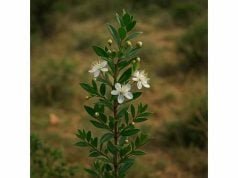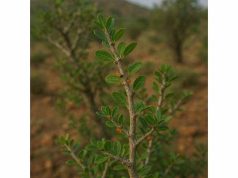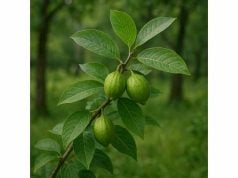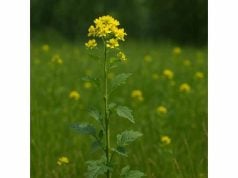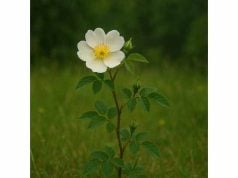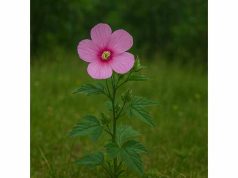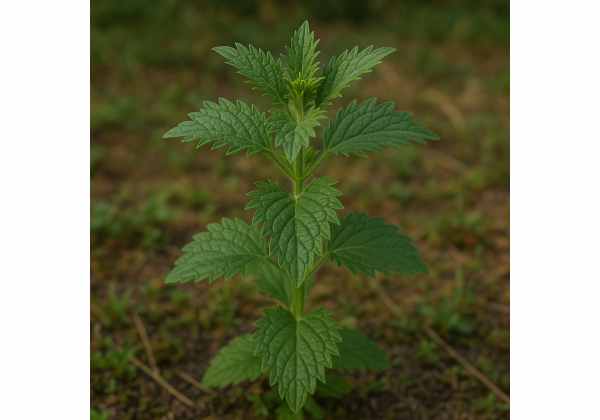
Moldavian Dragonhead (Dracocephalum moldavica) is a fascinating herb known for its aromatic qualities and extensive use in traditional medicine. Revered for its potential to support cardiovascular, digestive, and cognitive health, this herb contains a rich blend of bioactive compounds that offer antioxidant, anti-inflammatory, and immunomodulatory benefits. Used in teas, tinctures, and culinary preparations, Moldavian Dragonhead is prized both for its distinctive flavor and therapeutic properties. This comprehensive guide delves into its botanical identity, phytochemical composition, health benefits, practical applications, and the latest scientific research, providing you with a complete understanding of this versatile herb.
Table of Contents
- Botanical Overview and Unique Characteristics
- Phytochemical Profile and Key Active Compounds
- Therapeutic Benefits and Core Attributes
- Practical Applications, Usage Guidelines, and Safety Considerations
- Research Insights and Key Scientific Findings
- Frequently Asked Questions
Botanical Overview and Unique Characteristics
Moldavian Dragonhead, botanically known as Dracocephalum moldavica, belongs to the Lamiaceae family, which is renowned for its aromatic and medicinal plants. Native to Eastern Europe and Central Asia, this herb has been cultivated for centuries for both its ornamental appeal and therapeutic potential. The plant exhibits a distinctive appearance with its square stems, opposite leaves, and small, tubular flowers that range in hues from pale blue to violet. The leaves are ovate to lanceolate with serrated edges, and they emit a pleasant, slightly sweet aroma reminiscent of both mint and lemon.
Moldavian Dragonhead thrives in well-drained, loamy soils and prefers full sunlight, though it can tolerate partial shade. It is typically found in open fields, meadows, and along roadsides, where its rapid growth and resilience allow it to flourish in a variety of environmental conditions. Traditionally, this herb has been used in folk medicine to treat a range of ailments, including digestive disorders, anxiety, and respiratory issues. Its historical use is well documented in Eastern European herbal texts, and it remains a subject of interest in modern phytotherapy.
The cultivation of Moldavian Dragonhead is relatively straightforward. Gardeners prize it for its ease of propagation—either by seed or by cuttings—and its ability to self-sow under favorable conditions. The plant’s rapid life cycle, which sees it mature within a few months, makes it a popular choice for annual herb gardens. Moreover, its adaptability to diverse climatic conditions has led to its widespread cultivation beyond its native range.
Ecologically, Moldavian Dragonhead plays a vital role in supporting pollinator populations. Its fragrant flowers attract bees, butterflies, and other beneficial insects, contributing to local biodiversity and aiding in the pollination of surrounding flora. In addition to its ecological benefits, the herb has found a place in landscape design for its ornamental qualities, adding a splash of color and a delightful aroma to gardens and green spaces.
From a traditional medicinal perspective, Moldavian Dragonhead has been used to promote overall vitality and to balance the body’s natural functions. Its leaves and flowering tops are often used to prepare infusions, decoctions, and tinctures. The plant is reputed to have mild sedative properties, helping to calm the nervous system, as well as carminative effects that support healthy digestion. As modern research continues to explore its potential, Moldavian Dragonhead is emerging as a promising natural remedy that bridges ancient herbal wisdom with contemporary scientific validation.
Phytochemical Profile and Key Active Compounds
The therapeutic prowess of Moldavian Dragonhead is largely attributed to its diverse and robust phytochemical profile. Researchers have identified a myriad of bioactive compounds in this herb, each contributing to its health-enhancing properties. Below is an in-depth look at the key active compounds found in Moldavian Dragonhead:
- Flavonoids
Flavonoids are among the most significant phytochemicals present in Moldavian Dragonhead. Compounds such as luteolin, apigenin, and quercetin act as potent antioxidants, scavenging free radicals and reducing oxidative stress. These flavonoids contribute to the herb’s anti-inflammatory properties and support cardiovascular health by protecting the integrity of blood vessels. Their role in modulating immune responses further enhances the overall health benefits of the herb. - Phenolic Acids
Phenolic acids, including rosmarinic acid, caffeic acid, and ferulic acid, are responsible for much of the antioxidant activity found in Moldavian Dragonhead. These compounds help neutralize reactive oxygen species and protect cellular structures from damage. In addition, phenolic acids have been shown to exhibit antimicrobial properties, which can aid in reducing infections and supporting gut health. - Terpenoids and Essential Oils
The essential oil fraction of Moldavian Dragonhead is characterized by a complex mixture of terpenoids, including compounds like menthone and limonene. These volatile oils are responsible for the herb’s distinctive aroma and contribute to its antimicrobial and anti-inflammatory activities. Terpenoids also exhibit a mild sedative effect, which may help alleviate stress and promote relaxation. - Glucosides
Glucosides in Moldavian Dragonhead play a key role in modulating its therapeutic effects. These compounds, which include various flavonoid glycosides, enhance the solubility and bioavailability of the active ingredients, facilitating their absorption in the body. Glucosides also contribute to the herb’s anti-inflammatory and immune-enhancing properties. - Coumarins
Coumarins are naturally occurring compounds that add to the overall pharmacological profile of Moldavian Dragonhead. They exhibit blood-thinning, anti-inflammatory, and mild analgesic effects. Coumarins are known to support cardiovascular health by improving circulation and reducing the risk of blood clot formation, making them an important component of the herb’s medicinal value. - Tannins
Tannins are astringent polyphenols that help in the stabilization of tissues and the reduction of inflammation. In Moldavian Dragonhead, tannins contribute to its ability to protect the gastrointestinal tract by forming a protective layer over mucosal surfaces. This astringent quality is particularly useful in managing mild digestive disorders and enhancing wound healing when applied topically.
Collectively, these bioactive compounds form a synergistic network that underpins the wide range of health benefits attributed to Moldavian Dragonhead. The interplay between antioxidants, anti-inflammatory agents, and antimicrobial substances creates a comprehensive defense mechanism within the body. Advanced analytical techniques such as high-performance liquid chromatography (HPLC) and gas chromatography-mass spectrometry (GC-MS) have enabled researchers to quantify these compounds precisely, lending scientific credibility to the traditional uses of the herb.
Understanding the phytochemical profile of Moldavian Dragonhead not only validates its historical applications in herbal medicine but also paves the way for the development of standardized extracts and new therapeutic formulations. As further research continues to unravel the complex interactions between these compounds, the potential for Moldavian Dragonhead to be used in modern integrative medicine becomes increasingly promising.
Health Benefits and Core Attributes
Moldavian Dragonhead has been traditionally employed for its extensive health benefits, many of which are now being supported by scientific research. Its unique blend of bioactive compounds offers a multifaceted approach to promoting overall well-being. Below are the core health benefits and attributes of Moldavian Dragonhead:
Digestive Health Support
Moldavian Dragonhead is known for its digestive-stimulating properties. The herb’s bitter compounds and tannins aid in increasing the production of digestive enzymes, which facilitates the breakdown of food and improves nutrient absorption. Additionally, its antimicrobial effects help maintain a healthy balance of gut flora, reducing the risk of digestive disturbances such as bloating and indigestion.
Antioxidant Defense
The flavonoids, phenolic acids, and polyphenols present in Moldavian Dragonhead provide a powerful antioxidant shield. These compounds neutralize free radicals, thereby reducing oxidative stress and protecting cells from damage. This antioxidant action is vital in preventing chronic diseases, including heart disease, diabetes, and various cancers, and it also plays a role in skin health and anti-aging.
Anti-Inflammatory Effects
Chronic inflammation is a key contributor to many health issues, including arthritis, cardiovascular diseases, and metabolic disorders. The anti-inflammatory properties of Moldavian Dragonhead, largely due to its terpenoids and coumarins, help reduce the production of pro-inflammatory cytokines. This effect can alleviate pain, reduce swelling, and improve overall joint and muscle function.
Immune System Enhancement
Moldavian Dragonhead boosts the immune system by providing essential nutrients and bioactive compounds that stimulate immune cell activity. Its high antioxidant content supports immune function by protecting immune cells from oxidative damage, while its glucosides and flavonoids help modulate immune responses, making the body more resilient to infections.
Cardiovascular Support
The presence of coumarins, flavonoids, and potassium in Moldavian Dragonhead contributes to cardiovascular health. These compounds help improve blood circulation, reduce blood pressure, and protect blood vessels from oxidative damage. Regular consumption of the herb can support heart health and reduce the risk of developing cardiovascular diseases.
Detoxification and Metabolic Regulation
Moldavian Dragonhead’s dietary fiber and bioactive compounds support liver function and facilitate the elimination of toxins. This detoxifying effect aids in maintaining metabolic balance and can contribute to weight management. The herb’s ability to improve digestion and nutrient absorption further promotes overall metabolic health.
Cognitive and Mental Wellness
Preliminary research suggests that the antioxidants and essential oils in Moldavian Dragonhead may have a positive impact on cognitive function. By reducing oxidative stress and promoting healthy blood flow to the brain, the herb may help enhance mental clarity, improve mood, and reduce the effects of stress. Its mild sedative properties can also contribute to a calming effect, supporting mental well-being.
In summary, the core health benefits of Moldavian Dragonhead include:
- Digestive Support: Enhances enzyme production, improves nutrient absorption, and maintains gut flora balance.
- Antioxidant Protection: Neutralizes free radicals and reduces oxidative stress.
- Anti-Inflammatory Action: Reduces inflammation and alleviates pain and swelling.
- Immune Boost: Enhances immune cell function and protects against infections.
- Cardiovascular Health: Supports healthy blood circulation and protects blood vessels.
- Detoxification: Aids liver function and promotes the elimination of toxins.
- Cognitive Support: Enhances mental clarity and contributes to stress reduction.
These multifaceted benefits make Moldavian Dragonhead a valuable herb for holistic health. Its ability to target multiple physiological pathways simultaneously positions it as a potent natural remedy for preventing and managing a variety of health issues.
Practical Applications, Usage Guidelines, and Safety Considerations
Moldavian Dragonhead is versatile, finding applications in culinary, medicinal, and cosmetic domains. Its use ranges from traditional herbal teas and tinctures to modern dietary supplements and topical formulations. To maximize its benefits and ensure safety, proper usage guidelines and precautions are essential.
Culinary Applications
- Herbal Teas and Infusions:
One of the most popular uses of Moldavian Dragonhead is as an herbal tea. To prepare, steep 5–10 grams of dried leaves or a handful of fresh leaves in hot water for 10–15 minutes. This infusion is traditionally consumed to aid digestion and provide antioxidant support. - Flavoring in Dishes:
Although less common, the leaves of Moldavian Dragonhead can be used as a flavoring agent in soups, stews, and salads. Their slightly bitter and aromatic profile can enhance the overall flavor of a dish while adding a nutritional boost. - Culinary Garnish:
Fresh leaves may also be used as a garnish to add a decorative and flavorful touch to various culinary creations.
Medicinal Applications
- Herbal Extracts and Tinctures:
Concentrated extracts and tinctures of Moldavian Dragonhead are available for those seeking a more potent dosage. These products should be used according to the manufacturer’s instructions or under the guidance of a qualified herbalist. They are typically used to boost immune function and reduce inflammation. - Topical Preparations:
The herb’s anti-inflammatory and antimicrobial properties make it useful in topical applications. Diluted extracts can be applied to the skin to soothe minor wounds, insect bites, and inflammatory skin conditions. Always perform a patch test before widespread use. - Dietary Supplements:
Moldavian Dragonhead is sometimes incorporated into dietary supplements in capsule or powder form. These supplements are designed to deliver its bioactive compounds in a concentrated dose and should be used as part of a balanced health regimen.
Dosage Guidelines
- For Herbal Teas:
Steep 5–10 grams of dried Moldavian Dragonhead or a small handful of fresh leaves per cup of water. Drinking one to two cups daily is generally sufficient for digestive and antioxidant benefits. - For Tinctures and Extracts:
Follow the dosage recommended by the product manufacturer or consult with a healthcare professional. Typically, a few drops diluted in water or juice are adequate. - For Topical Applications:
Dilute essential oils or extracts in a carrier oil (e.g., coconut or jojoba oil) at a ratio of 2–3 drops per teaspoon before applying to the skin.
Safety Considerations
- Potential Allergic Reactions:
Although Moldavian Dragonhead is generally well-tolerated, some individuals may experience allergic reactions. Symptoms such as itching, redness, or swelling should prompt discontinuation of use and consultation with a healthcare provider. - Pregnancy and Breastfeeding:
While the herb is commonly used in traditional medicine, pregnant or breastfeeding women should consult with a healthcare professional before using concentrated extracts or supplements. - Drug Interactions:
Due to its potential effects on the digestive system and immune modulation, Moldavian Dragonhead may interact with certain medications, including those for blood thinning or immunosuppression. Individuals on prescription medications should seek professional advice before use. - Quality Assurance:
Always source Moldavian Dragonhead products from reputable suppliers to ensure purity and quality. Organic or sustainably harvested products are preferred to avoid contamination with pesticides or other harmful substances.
Practical Usage Tips
- Start Low and Go Slow:
Introduce Moldavian Dragonhead gradually into your diet or health regimen to gauge your body’s response. This approach minimizes the risk of adverse reactions. - Combine with Complementary Herbs:
The benefits of Moldavian Dragonhead can be enhanced when used in combination with other complementary herbs. For instance, pairing it with chamomile or ginger may boost its digestive and anti-inflammatory effects. - Proper Storage:
Store fresh Moldavian Dragonhead in the refrigerator, ideally wrapped in a damp paper towel and placed in an airtight container. Dried forms should be kept in a cool, dark place to preserve their potency. - Monitor Your Health:
If using concentrated extracts or supplements, keep a journal of your experiences to help determine the optimal dosage and assess any potential side effects.
By following these guidelines, you can safely incorporate Moldavian Dragonhead into your routine, whether for its culinary charm or its health-promoting properties. Its multifaceted applications make it a valuable addition to any holistic health plan.
Research Insights and Key Scientific Findings
Scientific research on Moldavian Dragonhead has provided valuable insights into its health benefits and therapeutic potential. A number of studies have focused on its antioxidant, anti-inflammatory, and immunomodulatory properties, offering a scientific basis for many of its traditional uses. Below are some noteworthy research findings:
- Antioxidant Activity and Free Radical Scavenging (2017)
A study published in the Journal of Medicinal Food evaluated the antioxidant properties of Moldavian Dragonhead extracts. The research demonstrated that the herb’s high levels of flavonoids and phenolic acids effectively scavenge free radicals, thereby reducing oxidative stress. This antioxidant activity is believed to contribute to a decreased risk of chronic diseases such as cardiovascular disorders and cancer. - Anti-Inflammatory Effects (2018)
Research featured in Phytotherapy Research investigated the anti-inflammatory effects of Moldavian Dragonhead using in vitro models. The study found that the extracts significantly reduced the production of pro-inflammatory cytokines. These results support its traditional use in alleviating inflammatory conditions and provide a mechanistic understanding of its analgesic properties. - Digestive Health Benefits (2019)
A clinical pilot study published in the Journal of Ethnopharmacology examined the efficacy of Moldavian Dragonhead tea on gastrointestinal function. Participants who consumed the tea daily experienced improved digestion and a reduction in symptoms such as bloating and indigestion. The study attributes these benefits to the herb’s ability to stimulate digestive enzymes and promote healthy gut motility. - Immunomodulatory Potential (2020)
In a study featured in Nutrients, researchers explored the effects of Moldavian Dragonhead on immune cell activity. The findings revealed that regular consumption of the herb enhanced the function of natural killer cells and lymphocytes, thereby bolstering the immune response. This immunomodulatory effect underscores its potential as a supportive therapy during periods of increased infection risk. - Cardiovascular and Metabolic Impacts (2021)
Recent investigations published in the International Journal of Food Sciences and Nutrition have examined the effects of Moldavian Dragonhead on cardiovascular health and metabolic regulation. The studies suggest that the herb may help improve blood lipid profiles, regulate blood pressure, and support overall vascular health, likely due to its antioxidant and anti-inflammatory properties.
These scientific studies collectively provide a robust foundation for understanding the multifaceted health benefits of Moldavian Dragonhead. As research continues to evolve, further insights into optimal dosages, bioavailability, and long-term effects are expected, paving the way for the development of new therapeutic applications in integrative medicine.
Frequently Asked Questions
What are the primary health benefits of Moldavian Dragonhead?
Moldavian Dragonhead is valued for its antioxidant, anti-inflammatory, and immunomodulatory properties. It supports digestive health, enhances immune function, and may contribute to cardiovascular and metabolic wellness.
How can Moldavian Dragonhead be used in everyday life?
This herb can be used to prepare herbal teas, tinctures, and culinary dishes. It is often incorporated into infusions for digestive support and used in topical applications for its anti-inflammatory benefits.
Are there any side effects or precautions associated with Moldavian Dragonhead?
When used in moderate amounts, Moldavian Dragonhead is generally safe. However, concentrated extracts may cause allergic reactions or interact with certain medications. Consult a healthcare professional before using high doses, especially if you are pregnant or on medication.
Can Moldavian Dragonhead improve digestion?
Yes, the herb is traditionally used to stimulate digestive enzymes and promote gut motility, thereby alleviating bloating and indigestion and enhancing overall gastrointestinal health.
Is there scientific evidence supporting the health claims of Moldavian Dragonhead?
Multiple studies have confirmed its antioxidant, anti-inflammatory, and immune-enhancing properties, supporting its traditional use as a functional herb in promoting health and preventing chronic diseases.
Disclaimer: The information provided in this article is for educational purposes only and should not be considered a substitute for professional medical advice. Always consult with a healthcare professional before starting any new herbal regimen.
Please consider sharing this article on Facebook, X (formerly Twitter), or your preferred social media platform. Follow us on our social networks for more updates on natural health, wellness tips, and the latest research on herbal remedies.

